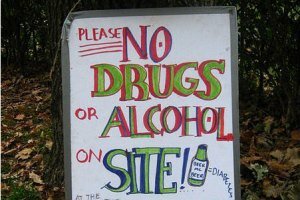
There is a commonality of factors that cause chronic illnesses, but substance abuse also has shame and stigma associated with it.
The major difference between other chronic illnesses and substance abuse is that the behaviors that a substance abuser exhibits have a negative impact on the well being of himself/herself and others around. For example, if an addict steals money from a loved one, it could create a host of relationship issues and may also lead to legal issues. Consequently substance abuse sticks out like a sore thumb relative to other chronic illnesses.
While there is no cure for addiction, the disease can be treated and managed by utilizing the four pillars of treatment: medication, therapy, life style changes and leveraging his/her support network. All the four have to become a part of the recovering addict's regimen. It is important to realize that one cannot expect to achieve success by adhering to just a part of the regimen. It is neither necessary for someone to hit "rock bottom" to engage in treatment nor do they need to be in treatment voluntarily. As long as the patient stays in treatment and is subjected to all these elements of treatment either on a voluntary basis or by force (by the legal system, employment issues or by loved ones), progress will become noticeable. Usually, the greater the length of treatment, the better the outcome.
The common factors shared by chronic illnesses (including substance abuse) are genetics, life stressors, life style preferences and iatrogenic factors. Iatrogenic is a doctor-induced factor – for example, doctors prescribe medication such as painkillers or anti-anxiety medication (Xanax) to treat genuine medical issues. But, these medications are addictive and have the potential to be abused, much like alcohol or other drugs. Intake has to increase steadily to achieve the same high (due to tolerance). Constant use of substances also causes reward pathways in the brain to be altered – while this is an important subject to discuss, to do so in this article would digress from the message, so I will defer it for another time.
The patient develops dependence to the prescribed medication or other drugs after using it for a period of time and efforts to stop the medication abruptly lead to withdrawal. Withdrawal symptoms include anxiety, sweating, vomiting, diarrhea, irritability, fatigue, shaking and nausea. Withdrawal can be dangerous (especially from alcohol and benzodiazepines) as it could lead to seizures, and, sometimes, even death. To be rid of these symptoms and get back to a physical normal the patient can do one of two things: either seek treatment (detoxification would be appropriate) or go back to using the alcohol/drug/medication the patient is trying to come off of.
While treatment has a medical component (detoxification) therapy plays a big role in effecting life style and behavior changes required to achieve and maintain sobriety. Motivation to seek treatment Is characterized as 1) Pre-contemplation, where one feels that there is nothing wrong about their behavior or use and it is the world that sees them differently, and, therefore, they do not require any treatment, or 2) Contemplation, where one feels that "may be I need help – it is not all about other people perceiving me differently."
Ideally, substance users are "met" by therapy providers at the level of motivation they exhibit and changes are effected slowly by rolling with the resistance to move the patient along. Once the patient moves from pre-contemplation to contemplation stage, he or she becomes ambivalent about change. Once the patient is ambivalent it is important to identify and assist them to take the steps necessary to focus on restructuring their life style and bolster self-efficacy to deal with obstacles. Then it is easy to work on maintenance of sobriety and relapse prevention.
All chronic illnesses need long-term treatment. But, how long is long in the case of substance abuse? I have always used the following question(s) in order to elicit an apt answer from my patients themselves; How long do you think you need to get a haircut on a regular basis?, or "How long do you think you will need to shave on a daily basis?" It dawns on them that they need to manage this disease for the long haul. For a patient with substance abuse issues, medication is the near-term solution and therapy is a longer-term solution, but maintenance of sobriety is life's work – made easier by leveraging the patient's support network (family, friends and self-help groups such as Alcoholics Anonymous or Narcotics Anonymous.)
Indra Cidambi, M.D., India News Bulletin's expert doctor columnist, is the Medical Director of Center for Network Therapy, the first licensed facility in the state of New Jersey to offer detoxification on an outpatient basis from all substances of abuse. The centre is Dr. Cidambi's own detoxification facility.
The views expressed in this article are solely that of the author, and not necessarily those of India News Bulletin.